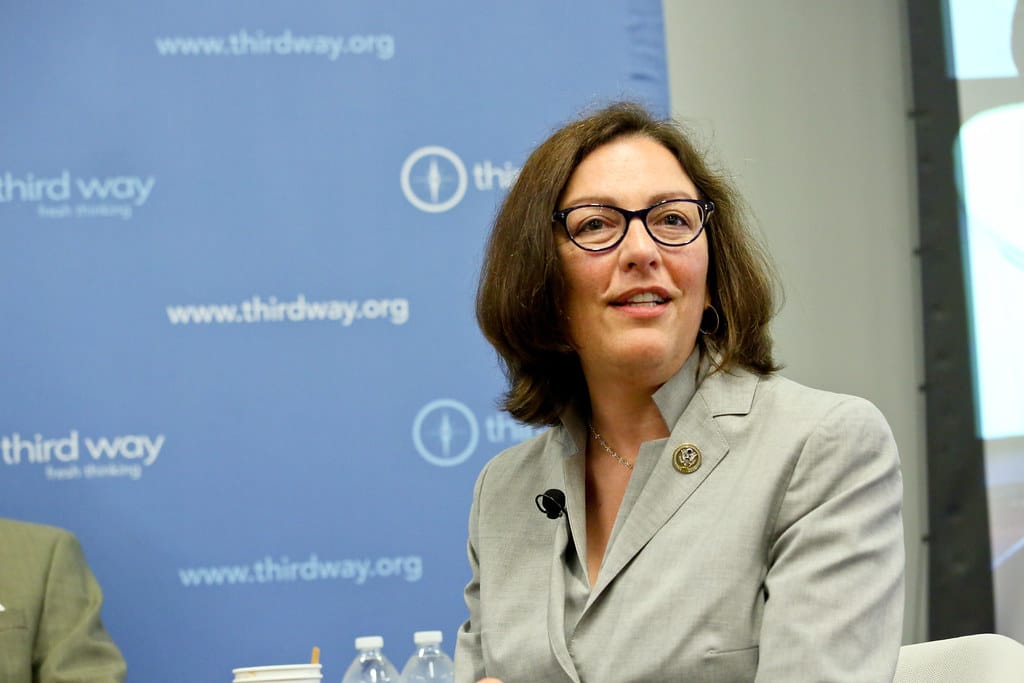Report Highlights Importance Of Satellite Technologies, Secure Data and Communications
The report on new technologies and data lays out importance of data security and satellite communications.

June 1, 2021—Federal leadership and global collaboration will be key if the United States hopes to remain at the forefront of technological innovation and compete globally in the coming decade, finds the Report of the Commission of Geopolitical Impacts of New Technologies and Data.
Lawmakers and technology experts gathered on May 26 at an online conference hosted by the Atlantic Council to acknowledge the report’s importance and highlight the need for a national strategy to implement the report’s findings.
“The advancing speed, scale, and sophistication of new technologies and data capabilities that aid or disrupt our interconnected world are unprecedented,” the executive summary of the report says.
“As a result, governments, industries, and other stakeholders must work together to remain economically competitive, sustain social welfare and public safety, protect human rights and democratic processes, and preserve global peace and stability.”
The report lists seven specific areas of focus that it recommends the United States government invest in and plan for.
Global scientific and technology leadership
Sen. Mark Warner, D-Virginia, says that collaborating with other democracies on establishing critical technological infrastructure will be necessary if we hope to compete with China’s growing economy, which is bolstered by its technological investments. He says that democracies worldwide must come together and establish common rules for technology regulation that compliment democratic ideals.
Rep. Suzan DelBene, D-Washington, says that no significant federal standard exists that regulates or consolidates technological enterprise. She believes that we must build private and public relationships that ensure technologies “are used equitably [and] That they protect civil rights, human rights, civil liberties, reach all types of communities and still promote innovation.”
Space operations for the public benefit
The report says the government should help foster the growth of the space industry in order to “leverage the increasing capabilities of large commercial satellite constellations.” The United States has offered subsidies and grants to both Elon Musk’s SpaceX and Jeff Bezos’ Blue Origin. In December, SpaceX’s Starlink broadband project received nearly $900 million from the Federal Communications Commission’s Rural Digital Opportunity Fund.
Secure data and communications
The report emphasizes the need for network and data security, calling for new and innovative methods in both the public and private sectors to secure digital environments. It encourages investment in new computing and software designs that strengthen cyber defense.
Enhanced trust and confidence in the digital economy
The report says that governments and private industries should establish new frameworks for data that incorporate “security, accountability, auditability, transparency, and ethics,” in order to maintain credibility in the digital ecosystem. Consumer confidence and trust will be an essential element to building a sustained measure of public investment that will allow the technology industry to continue to thrive in the coming decade.
Secure supply chains
Currently, much of the supply that sustains America’s technological industry originates overseas, which, while good for foreign trade, poses a potential threat. Foreign governments could potentially weaponize the supply chains that grow America’s industry, and stunt both our economic and technological progress.
To prevent this, the report argues, “the government should develop procedures and allocate resources to achieve sufficient resiliency,” in order to ensure the economic security of the United States.
In March, FCC Acting Chairwoman Jessica Rosenworcel said diversifying the country’s networks, including the use of open radio access networks, would not only help with cost-savings but also with security.
Future of work
The report claims that all of the infrastructure investment and planning the United States can undertake will be useless if it fails to invest in its own people. To meet the challenges we’ll face as a Nation in the coming decade, the private and public sectors must come together to help educate and create a digitally fluent workforce that can help implement, maintain, and develop the growing digital infrastructure.
Continuous global health protection
In order to protect the country from further health and climate disasters, the report says that the government should utilize available technology to create models that act as an early warning strategy against future health catastrophes.







